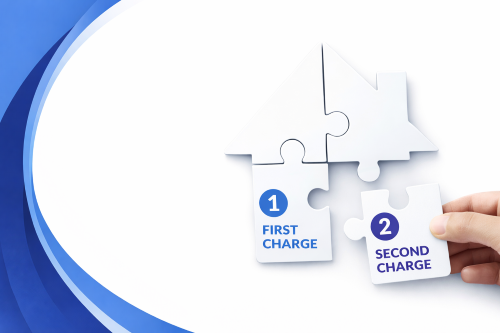
Second charge brokers | A second charge mortgage, also known as a secured loan, allows homeowners to release equity from their property without affecting their existing mortgage. This option can provide funds for home improvements, debt consolidation, a large purchase, or even business purposes, all while keeping your current mortgage terms unchanged.
Unlike a full remortgage, a second charge mortgage may be beneficial if your existing deal has early repayment charges, you want to keep a competitive interest rate, or your circumstances have changed and remortgaging is less suitable.
Understanding second charge lending requires expert advice. A specialist broker can assess your financial position, compare lenders, and secure a suitable deal for you. With access to a wide range of lenders, they may find solutions unavailable through high-street banks.
Could a second-charge mortgage be right for you? Speak with one of our experienced advisers today to explore your options without affecting your main mortgage.
Understanding Second Charge Mortgages

Second charge mortgages are secured against the equity in your home that sits alongside your existing mortgage. The amount available is based on your property value, current mortgage balance, and affordability.
For example, if your home is worth £300,000 and your main mortgage balance is £200,000, the remaining equity may be used as security for a second charge mortgage, subject to lender criteria.
Homeowners often explore this option when they want to borrow without changing their existing mortgage deal. A second charge mortgage allows you to raise funds while keeping your current lender and interest rate in place.
Speaking with second charge mortgage brokers near you can be especially helpful. A local adviser understands regional property values and lender expectations in your area. You can also find a mortgage adviser through Connect Experts who specialises in second charge lending and offers advice tailored to your location.
Reasons to Consider a Second Charge Mortgage
Avoid the Cost of Remortgaging
If your existing mortgage includes early-repayment charges or a low fixed rate, a second-charge mortgage lets you release equity without changing your current deal. This can be useful if switching lenders would increase your overall borrowing costs.
Flexible Borrowing Based on Your Property and Location
Second charge mortgages can offer borrowing from £10,000 up to higher amounts, depending on your available equity, affordability, and local property values. A broker who understands your area can help assess realistic options.
Potentially Lower Rates Than Unsecured Borrowing
Because a second charge loan is secured against your property, interest rates are often lower than those offered on personal loans or credit cards. A local adviser can explain how this compares with other borrowing options available in your region.
Retain Your Existing Mortgage Rate
If you are currently on a favourable fixed-rate, a second-charge mortgage allows you to raise funds without refinancing your main mortgage. This can help protect your current rate while still allowing you to borrow more.
If you are self-employed, have a complex income structure, or need a flexible way to raise funds, speaking with second charge mortgage brokers near you can help. You can also find a mortgage adviser through Connect Experts who understands your local market and individual circumstances.
Second Charge Brokers and Their Roles
Second charge mortgage brokers help borrowers connect with lenders that offer secured loans against existing property equity. Their role is to review your financial position, understand your borrowing goals, and identify suitable second charge options based on your circumstances.
Working with a broker can give you access to a broader range of lenders, including specialist providers that are not available directly to the public. This is especially useful for borrowers with complex requirements or those looking for tailored lending solutions. Choosing a broker with experience in second charge lending and strong lender relationships can improve the quality of advice you receive.
Location can also influence the overall experience. Many people prefer to find a mortgage adviser who understands local property values and lending trends. Others may feel more comfortable working with mortgage advisers near you who offer local knowledge, face-to-face communication, or familiarity with regional affordability criteria.
Personal preference matters too. Some borrowers choose to work with advisers who speak their first language or share a similar cultural understanding. Connect Experts allows you to search for bilingual mortgage brokers and browse A-Z mortgage brokers, helping you find a second charge specialist who fits both your financial needs and personal preferences.

Alternatives to Second Charge Mortgages
While a second charge mortgage can be suitable in many situations, it is important to consider other borrowing options before proceeding. A local adviser can help you compare these choices based on your circumstances and location. If you are unsure, you may wish to find a mortgage adviser who can explain each option clearly.
Remortgaging Your Property
Remortgaging involves replacing your current mortgage with a new one. This may allow you to release equity or change your interest rate. It can be suitable where early repayment charges are low, and lender criteria are met. A broker familiar with local property values can advise whether this is realistic in your area.
Personal Loans
A personal loan is an unsecured form of borrowing. It does not use your property as security. Loan amounts are usually lower, and interest rates are often higher than secured lending. Repayment terms are fixed, which may suit short-term borrowing needs.
Credit Cards
Credit cards may be used for smaller expenses. Some offer introductory interest-free periods on purchases or balance transfers. Careful repayment is essential, as interest rates can increase significantly once the promotional period ends.
Equity Release
Equity release may be an option for homeowners aged 55 or over. Products such as lifetime mortgages allow access to property equity without selling the home. Interest is added over time and repaid when the property is sold. Equity release can reduce the value of your estate and may affect inheritance. Advice should always be provided by a suitably qualified adviser. For tailored guidance, speak with mortgage advisers near you to clarify which option best suits your financial position.
Browse Our Second Charge Brokers
Other Topics of Interest
FAQ: Second Charge Brokers
| Question | Answer |
|---|---|
| What is a second charge mortgage? | A second charge mortgage is an additional loan secured against your property when you already have an existing mortgage. It allows you to release equity without changing your current mortgage deal. |
| Why should I use a second charge broker? | A specialist broker can compare lenders, rates, and terms to find the most suitable option for your circumstances. They can also assess affordability and eligibility more effectively than applying directly. |
| Who can apply for a second charge mortgage? | Homeowners with sufficient equity in their property and a good payment record on their existing mortgage may be eligible. Brokers help assess whether this option is suitable for your financial situation. |
| How much can I borrow with a second charge mortgage? | The amount depends on your property value, outstanding mortgage balance, income, and credit history. Brokers use these details to match you with lenders offering the most competitive deals. |
| Is a second charge mortgage the same as remortgaging? | No. A remortgage replaces your existing loan, while a second charge mortgage adds an additional secured loan on top of your current mortgage. It’s often chosen to avoid losing a low fixed rate. |
| Can I get a second charge mortgage with bad credit? | Yes, some lenders offer second charge mortgages to borrowers with credit challenges. A broker can identify lenders who specialise in these cases and help you secure a realistic solution. |
| What are the risks of taking a second charge mortgage? | As your property is used as security, missed payments could put your home at risk. Brokers explain all costs, risks, and terms clearly before you commit. |
| How long does it take to arrange a second charge mortgage? | Most applications take between two to four weeks, depending on how quickly documents and valuations are completed. Using a broker often speeds up this process. |
| Do I need to inform my current mortgage lender? | Yes, your first mortgage lender must be notified, but they do not have to approve it. Your broker will manage this step as part of the process. |
| Can a second charge mortgage be used for any purpose? | Generally yes, as long as it’s for a legal purpose such as home improvements, debt consolidation, or funding a business. Your broker will ensure the lender agrees with the loan purpose. |







